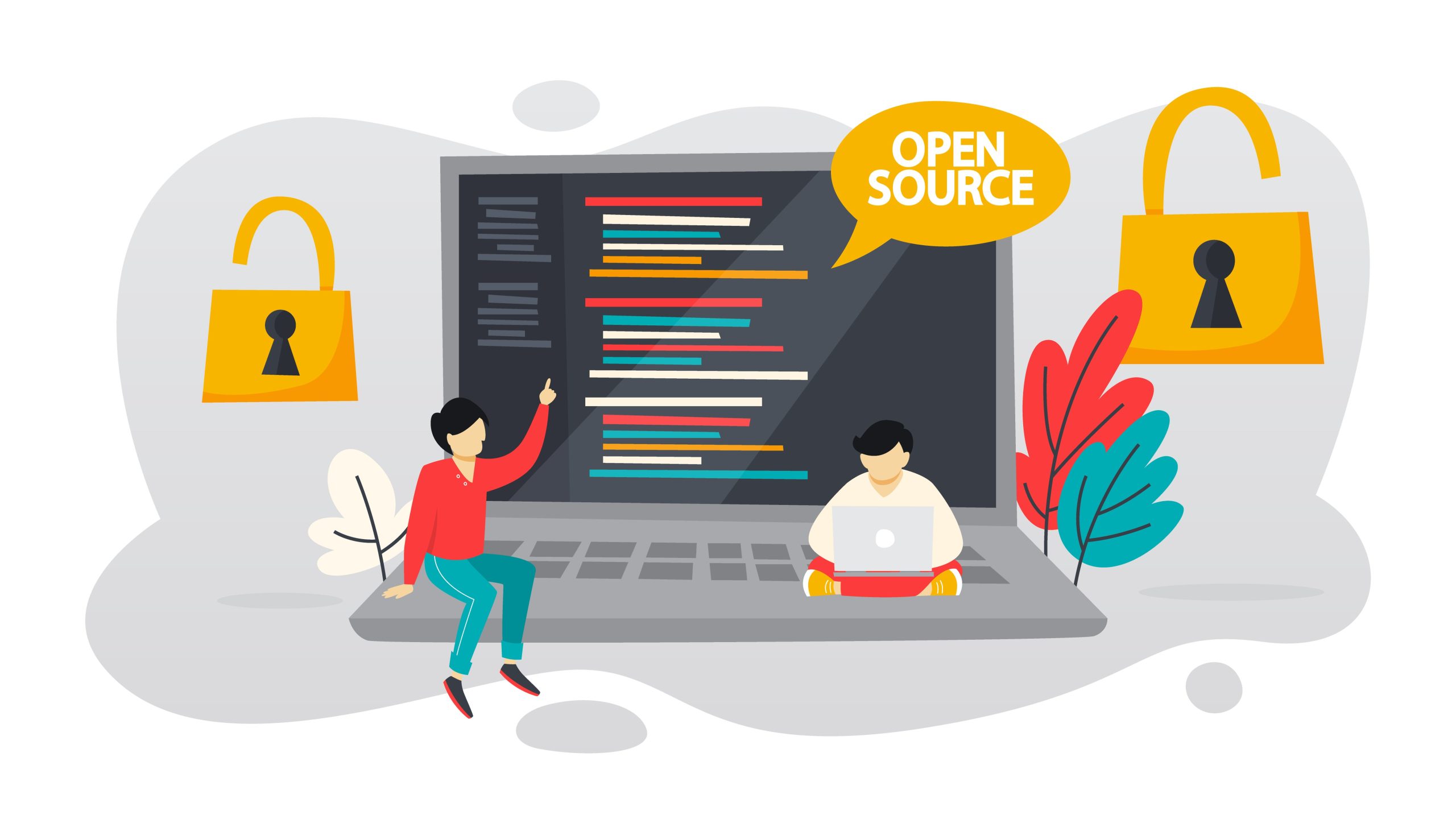When it comes to building a website, you are faced with a variety of decisions that need to be made. The most important is partnering with the right agency. (Bit of a sales pitch, but I stand by that statement) Another important decision you’ll make when building a website is choosing the best CMS (content management system) for your project. You’ll have many options, but most fall into these two categories: Open Source or Proprietary.Wait, what does “Open Source” and “Proprietary” mean? It comes down to control, access, and ownership of the source code. Open Source Software, such as WordPress, Drupal, and Laravel, is freely available to the public. This means that a developer can download the code, read it, and modify it. Proprietary Software, such as Wix or SquareSpare, is owned, managed, and maintained by the company or individual who created it. Meaning that you can build out a website with them, but you lack the power to modify the underlying code.
At CommonPlaces, we encourage our customers to use the best software for their business. When push comes to shove, we will always recommend and prefer to work on an Open Source Platform for any project.
Benefits of using Open Source Software:
1. Software Ownership
Open Source Solutions are not owned by a specific company, meaning YOU own your website and its content so you can take it anywhere.
Most Open Source software Solutions are covered under the GNU General Public License, meaning they are publicly accessible. This guarantees that anyone can look at, modify, and distribute the code as they wish, and as their ‘own.’ In addition, it is community-developed, so no individual or company owns the rights to it, making it very portable. This differs from Proprietary software which is typically owned and licensed by a specific company or organization. Therefore you do not necessarily ‘own’ your site or its code and can run into issues if and when you choose to work with another vendor. You might be able to download the graphic and some content, but you don’t have access to the underlying system.
For example: Let’s say CommonPlaces developed a kick-butt website and awesome customer experience portal integration for your business. You happen to sell that business and move on to bigger things. Guess what. CommonPlaces used open source code as the basis to build and develop that online aspect of the business you’re selling – so we can work with you again to build out yet another awesome online experience for your new venture without any pesky proprietary software licensing hoops.
2. Community Support
There is a HUGE community that is working on core and new features and can answer questions and help solve problems.
Open Source platforms develop communities around them. Each community is constantly trying to identify needs and solve problems by creating new features and code updates. Drupal.org alone has well over a million members, who are constantly modifying core features and contributing to a library of over 49,000 free modules. Is your site built in WordPress? That community has created over 59,000 free plugins and countless themes and templates for you to choose from.
Community members are encouraged to communicate, ask questions, report issues, and work to improve the codebase. This means continual improvement, and seemingly endless 24/7 support. So, if you are stuck and need assistance configuring a specific feature of your site, there is an entire community at your back ready to help you succeed.
3. Feature Flexibility
Open Source means that you can see the source code, allowing you to customize the solution to meet your needs rather than be limited to the features and functionality provided.
Proprietary Software Solution typically don’t let other developers see the code. They hire internal developers to work on and support their proprietary software and are the only ones that can really improve its features. As a result, you might need to wait weeks or years before your desired feature or functionality is added by the company maintaining the software.
As the code is publicly available, the Open Source community is constantly modifying and creating new features for anyone to use. If you find a module or plug-in that performs most of the functions you need, you still have the flexibility to customize the additional pieces you want. So the possibilities are nearly limitless. For example: If you need to integrate your member portal with Salesforce or other CRM to track open support tickets, or offer multiple check out options depending on the users location – If you can’t find a module that works the way you need it to, your local, friendly CommonPlaces agency can help. Shameless plug, we know.
Your business is unique and so are your goals, processes, and workflows. Which is why it is vital to work with a solution that you can customize to fit your needs rather than trying to modify your daily operations to work with the provided functionality. |
-
4. Freedom of Resources
The freedom to work with who you choose is a huge benefit for any company. Open Source gives you that freedom.
As previously mentioned, the Open Source community is vast. With such a huge community, you’ll find that there are plenty of solution providers that service the same Open Source software your website uses. This means service is seamlessly available from agency to agency. So if you do not like the vendor of choice, you find someone else who better aligns with your needs, budget, and vision.
A word of caution, when it comes to evaluating your options: “Choose wisely.” The community is wonderful and filled with very talented individuals, but not everyone in the community follows best practices. This decision to cut corners can become very costly down the line. We have inherited many websites built elsewhere, so we can attest that some were great, some ok, and some were dumpster fires rolling downhill.
5. Cost: No licensing fees
For many, one of the biggest advantages of using Open Source Software is that they do not have to pay to have access to the code.
Most Proprietary solutions charge a recurring licensing fee to use their systems, and often have multiple tiers of access, depending on your use and functionality requirements. This is not the case with open source, which is covered under the General Public Licenses and therefore makes the code available for anyone to use without fees.
Now, this doesn’t mean that a new website will be FREE – because while the code itself is free, there is always going to be a fair cost associated with labor, hosting, and the occasional third party cost. There are thousands of free plugins and modules available, but there are also some ‘premium’ options that may require a one-time or recurring payment to be granted access to use. Even with these costs, the open source route’s bottom line is significantly less than that of proprietary software.
On top of that, there are some CMS’s that are “pseudo open source.” They’ll provide the framework for free, but enhancements and modules typically have a small cost associated because someone has taken the time to build them out so they function well. In the specific case of Magento CMS, there are even different versions of the system, so this is also something to be aware of when considering your open source options.
Is Open Source Right For You?
Open Source platforms, such as Drupal, WordPress, or Laravel, are great solutions for any web project. They rely heavily on community production, as well as peer review, collaborative modification, and continual improvement. They are often less expensive than proprietary software, more flexible, and have great longevity since they are developed by entire communities rather than just one developer or one company.
There are so many factors to consider when it comes to deciding which option is best for your company’s website or portal. At CommonPlaces, we are your partner in your web project. We’ll help you decide which choice will generate the best ROI (because, let’s be real, when YOU look good WE look good!) Drop us a line about your next project and we can help you choose what will work best for you.



